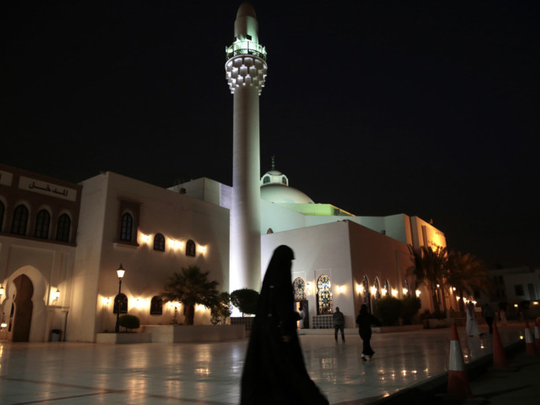
Cairo: A veteran preacher of a major mosque in the Saudi capital Riyadh has described as a tough experience the 74-day closure of places of worship in the kingdom and called their reopening a new Eid.
On Sunday, mosques reopened for congregation prayers across Saudi Arabia, except in the holy city of Mecca as part of the kingdom’s plan for gradual return to normal life amid worshippers' jubilation.
"Return of prayers to mosques is a day of Eid," Shaikh Adel Al Kalbani, the imam of Al Muhysan Mosque in Riyadh told Saudi television Al Ekhbariya Sunday night. Shaikh Adel has been serving as an imam in different mosques mainly in Riyadh for 38 years.
" In the past, a mosque could be temporarily closed due to renovation or restoration works. At the time, one could go to another mosque. But to unable to go to all mosques, including the Two Holy Mosques , this was really a tough experience that I haven't seen before in my life," he added.
In March, Saudi authorities suspended prayers in mosques nationwide amid a series of precautionary measures to contain the spread of COVID-19.
The Ministry of Islamic Affairs has issued a raft of precautions for performing group prayers in the mosques. They include opening mosques 15 minutes before the Adhan and close them 10 minutes after the end of the prayer with the interval between the Adhan and the start of the prayer shortened to 10 minutes.
Worshippers are kept apart with a distance of two metres. Children under 15 are barred from going to mosques as a preventive measure.
Worshippers have to perform the ritual ablution at home and bring their personal prayer rugs to use in mosques.
Distribution of water and food are banned inside mosques as a preventive measure. Likewise, religious classes and Quran memorisation gatherings in mosques are suspended.
Worshippers have their temperatures checked before they are allowed into the mosques.








